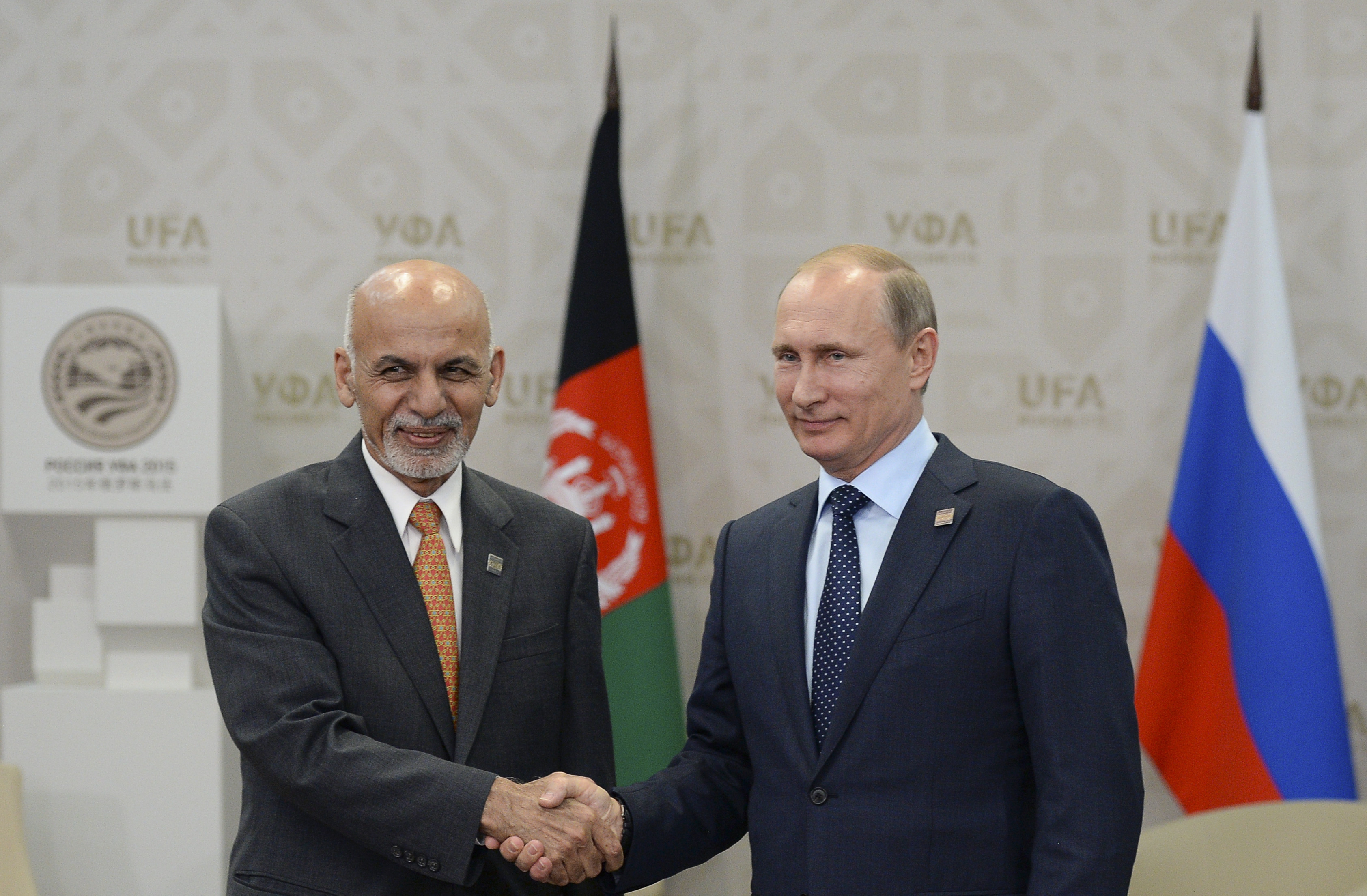The Political Deconfliction of Russia and the United States in Afghanistan
Beyond looming questions over Russian interference in the 2016 U.S. presidential elections, the future of U.S.-Russia relations hangs in the balance over conflicting interests in Ukraine, Syria, and Afghanistan. On Ukraine, the recent standoff between Russian and Ukrainian vessels in the Kerch Strait has led to the cancellation of the bilateral between presidents Donald Trump and Vladimir Putin. On Syria, although there has been no political consensus on Bashar al-Assad’s fate, American and Russian forces have nevertheless successfully engaged in military deconfliction measures to avoid miscalculation — that may lead to a direct military confrontation. On Afghanistan, after continued stalemates on negotiations with the Taliban, U.S. Special Representative for Afghanistan Reconciliation Zalmay Khalilzad completed his low-profile visit to Moscow on December 7. Both sides discussed the prospects for Russian-American cooperation to facilitate the launch of direct dialogue between opposing Afghan parties. The visit comes as a welcome development as, analogous to the U.S.-Russia military deconfliction in Syria, a political deconfliction between the two power’s conflicting interests in Afghanistan stands warranted.
In Syria, Russian air support towards propping Bashar al-Assad’s rule and American air strikes on extremists-held territories, raised prospects of a military confrontation in the ‘fog of war’. Shortly after Russia’s military intervention in Syria in 2015, the “deconfliction channel” — a “continuously open line of communication between Washington and Moscow” — was set up. As U.S. Chairman of the Joint Chiefs of Staff Gen. Joseph Dunford once distinguished, the communication stops short of coordinating targets. In deconflicting the Syrian airspace however, the channel has reportedly proven to be “invaluable while Russia targets those opposed to Assad’s rule, and the West has supported attacks against Islamic State in the region.”
Although, in Afghanistan, Russian and American forces are not at risk of a military confrontation, a political deconfliction to address the incompatibility of Russian and American interests over Afghanistan’s post-conflict endgame stands imperative.
Today, the Afghan government “controls or influences 229 or Afghanistan’s 407 districts, and the Taliban 59.” In such a scenario, one may argue that the U.S. is negotiating from a weakened position. The recent roadside bomb attack near Ghazni city which left 3 American soldiers dead stands as yet another testament to the fight’s protracted nature. With the Taliban continuing to — if not gain, at least challenge control of government-held territories, the chances of capitulation at the negotiating table are dim.
Furthermore, competing interests — stemming from varying Russian and American ‘great power competition’ considerations, have dampened prospects of a political resolution with the Taliban.
A political deconfliction in Afghanistan would mean a tacit dampening of either party’s interests so as to no longer hinder a stable pro post-conflict Afghanistan.
For the United States, it has been reported that Washington has expressed its interests in maintaining at least two bases – in Bagram and Shorabak to continue to host U.S. forces for train and advise missions. An American interest to continue to hone a substantive presence at the cross-roads of China’s Xinjiang and the Central Asian heartland, possibly even bears an imprint of ‘great power competition’ considerations. The stalemate has persisted as the Taliban has refused to acquiesce to this demand as the “casus belli” for its insurgency has been the presence of foreigners itself. Whereas, Russia has frequently criticised the failure of US and NATO troops in not only resolving the issue but also underscored its role in further exacerbating it. The sticking point being, for Russia, a limited US presence in post-conflict Afghanistan stands unpalatable — much less an expansive control of two strategically located air bases.
In context of this apparent stalemate over competing Russian and American interests, a political deconfliction may be spurred by Qatar.
As the host nation for the Taliban’s government in-exile office and its record of detaining senior Taliban figures as an impartial third party, Doha hones considerable influence over the Taliban. Hence, the Qataris can either employ their influence with the Taliban towards a minimal American footprint in post-conflict Afghanistan, or doubly assuage Russian concerns by proposing a larger US presence in the region — and not in Afghanistan per se.
Recently, Qatar’s Defence Minister Khalid bin Mohammad Al-Attiyah offered US Secretary of Defense James Mattis a plan to expand the existing US airbase in Qatar while also offering for a permanent US base. In the post-9/11 era, Qatar has been pivotal to American defense architecture in the Middle East. Out of the five component commands of the U.S. Central Command (USCENTCOM), two operate forward headquarters in Qatar — the U.S. Air Forces Central Command (AFCENT) and the U.S. Special Operations Command Central (SOCCENT).
For its part, Qatar would expect continued American neutrality — if not outright support, in the ongoing blockade imposed by Saudi Arabia and UAE. The precedent for which is already apparent with the United States not only calling for an amicable resolution to the issue, but also continuing its relation — mainly in the security realm, with Qatar. Furthermore, the US recently approved the sale of the National Advanced Surface to Air Missile System (NASAMS) to Qatar for an estimated $215 million.
Hence, a political deconfliction brokered by Qatar could dampen conflictual interests by providing the United States the lasting presence it needs, whilst simultaneously also assuaging Russian concerns over an expansive US footprint in post-conflict Afghanistan.

This article is published under a Creative Commons Attribution-NonCommercial 4.0 International licence.

